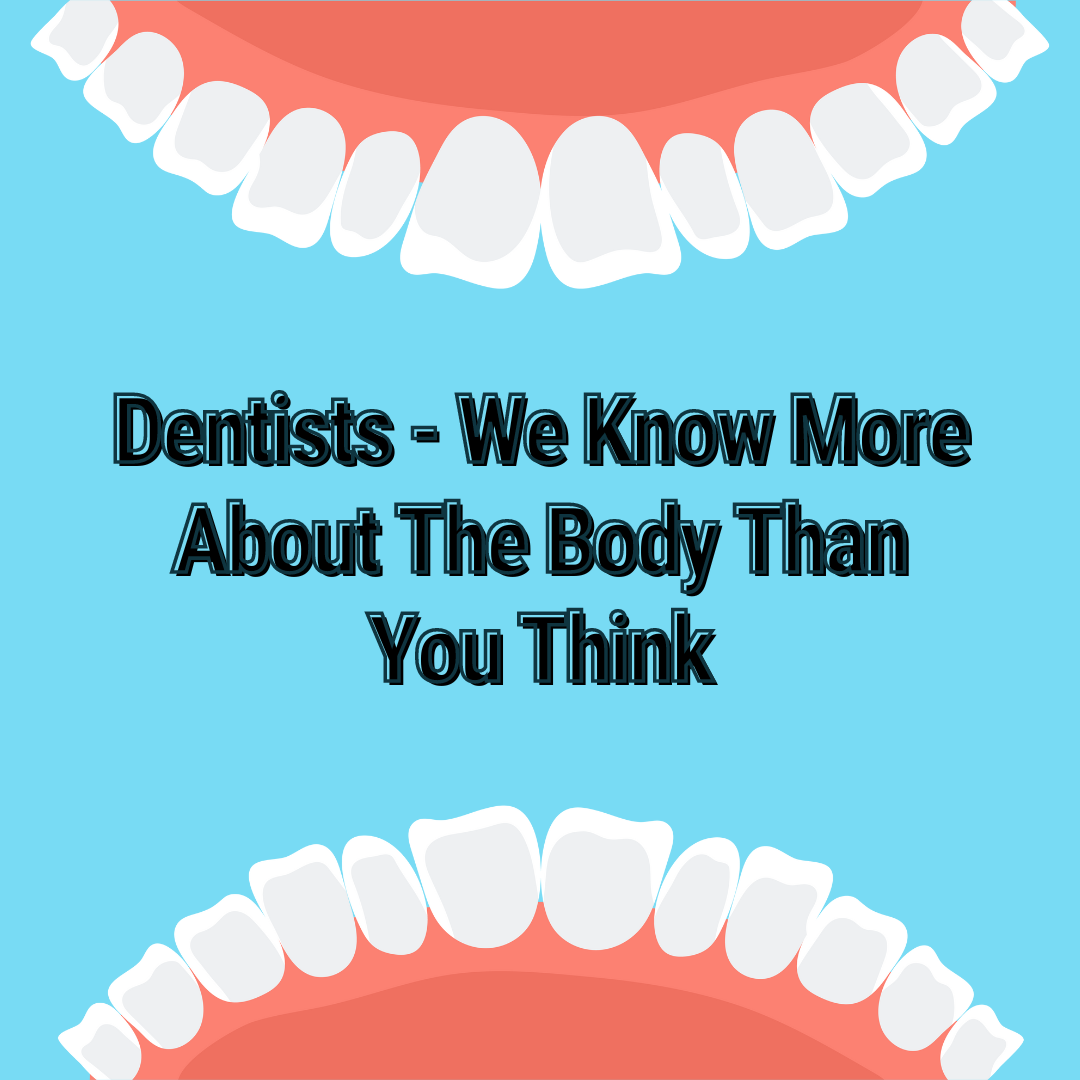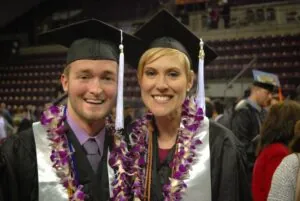
So, our last podcast we talked about the difference between DDS and DMD. A couple people reached out and asked us - "What does it take to become a dentist?" (thanks Alex) and "Do you know more than just teeth - like do you learn about more of the human body in dental school?" (thanks Ben). So, let's talk about what dental school looks like and a little bit about the educational background of dentists.

The Beginning Of Time
Okay you graduated from high school and you want to go to college. Cool. So you get in and you start your classes. The major does not truly matter - what matters is that you meet the prerequisites to get into dental school. So, because of that...pre-dental students often major in the sciences -biology, chemistry, and anatomy. But, it is also possible to major is other subjects. I had friends in dental school that earned degrees in philosophy, Spanish, and sociology. It is possible...it is just a bit harder because the aforementioned degrees do not have a lot of overlap with majors of the science variety...so you end up taking more classes. Not a bad thing, just something to be aware of.
After College
Yay. You graduated with a bachelors degree and are ready to become a dentist. Close. You are almost there. The next step is to take the DAT, otherwise known as the dental admissions test. This exam is your entrance into dental school - it covers the major sciences you learned in your undergraduate studies plus another section called the PAT, otherwise known as the perceptual ability test. The PAT is basically a way for dental schools to test your visual aptitude. The exam consists of various images with questions that test your ability to visualize certain things - like showing you a 3D object and a hole and asking which object will fit through the hole.
Then you are accepted into dental school and on your merry way. You and 100 other eager -soon to be dentists- are ready to start your four year educational journey.
Dental School
Most people apply to around 5-10 dental schools casting a wide net and hoping one bites. I went to VCU Dental School - so I can only speak to that, but am sure most of my colleagues had a similar journey.
We started off with human anatomy which included cadaver lab. So, yeah we learned about the entire human body...and even desiccated one...well actually like 15 human bodies. This allows you to understand all the intricacies involved in day to day life and in sickness. I find this very important because everything we do impacts the overall body. We not only work on teeth, we prescribe medications that impact boldly systems and operate within a body system that is interconnected. Even after the first year, young dentists work through various courses like pharmacology, pathology, and histology. This completes a holistic view of the human body.

Pre-Dentist
Dental School. Done. Yeehaw.
Following dental school, you take a couple board examinations consisting of written exams and hands on exams. These are submitted to the state and with a passing score you are qualified to practice dentistry.
Okay seriously almost there.
You have one of two options - 1) attend a residency for general dentists or 2) go straight into practice
Residency
I chose to complete a dental residency. Dental residency improved my skills from dental school, taught me new skills...(like dental implants and grafting procedures), and enhanced my emergency management skills (which was super important to me - learning advanced cardiac life support, learning how to manage a patient's airway, etc). My residency was one year and was the best decision ever.
Private Practice (Skip The DSO)
Most residency programs do not require a dental license. So, while you are treating patients and enhancing your skills you are operating off your attending doctors licenses. This is fine, just know that it takes time to acquire a dental license as most states have different tests, paperwork, and random assignments that must be completed.
If you go straight into practice try to find a dentist that is open to mentorship. This will allow you to transition easier from dental school to operating as a full fledged dentist. You will learn new skills and pick up your speed under the guidance of someone who has been practicing for decades.
We can dive into how to decide on a job / how to filter through job offers in a later post - but it is SO IMPORTANT to have an attorney read your contract before you sign. My first job appeared great on paper, but ended up being a nightmare. So, just make sure things are the right fit for you.
Conclusion
The main focus of dental school is to prepare you to be a clinician with a primary focus of the neck up. Dentists do learn about the entire body and are well versed in various aspects of medicine. Following dental school, some general dentists even pursue more education and completed a hospital residency (this is what Dr. Rusty and I did). This enhanced and grew our skill set.
Hopefully this answered your questions - Ben and Alex. thanks for reading and feel free to reach out with any questions!




